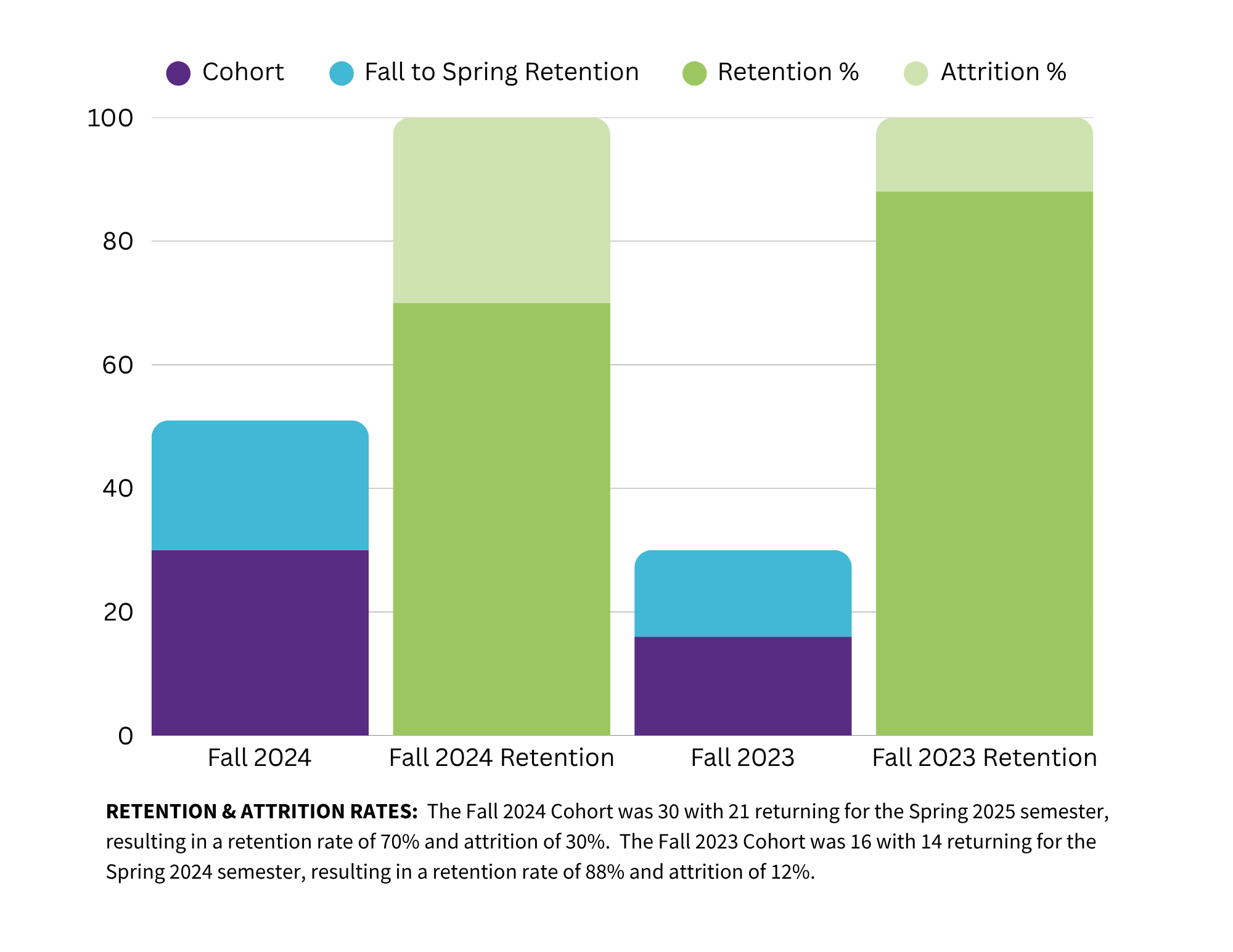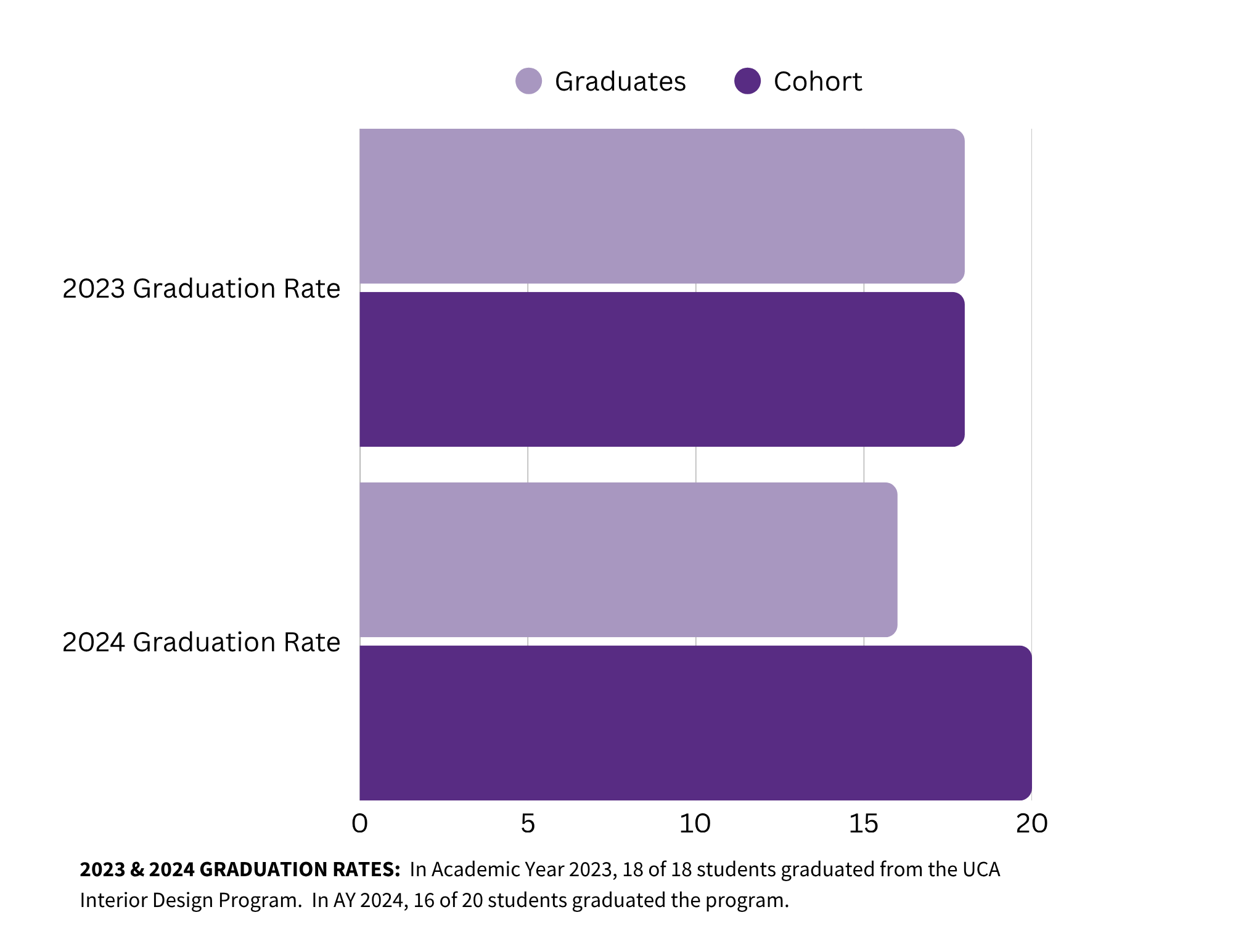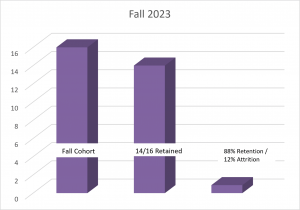The UCA Department of Art and Design offer two degree options for Interior Design majors: a Bachelor of Science or Bachelor of Arts. The curriculum for the Interior Design degree is planned to prepare students to serve the interior design and architectural professions in areas of commercial and residential planning and merchandising. Coursework for Interior Design includes basic design, technical knowledge and skills, communication, history of the arts, and business practices. The program is accredited through the Council for Interior Design Accreditation (CIDA), National Association of Art and Design (NASAD), and National Council for Preservation Education (NCPE). Interior Design students are given the opportunity to study in Italy with UCA Study Abroad.
See pictures of student involvement and links to student portfolios.
- Checklist for BS Interior Design
- Checklist for BA Interior Design
- 2nd Degree Interior Design
- Academic Map (Eight-Semester Plans) 2024-2025 for BS Interior Design
- Academic Map (Eight-Semester Plans) 2024-2025 for BA Interior Design
- Required supplies and technology for courses throughout the program
Alumni News
ASID UCA Student Chapter
Retention, Graduation, and Job Placement
Interior Design Student Achievement 2024 Data
Interior Design Student Achievement 2023 Data
Data is gathered from the previous year. Current year data is generally available in the following Spring.
Retention & Attrition Rates 2023
- 88% of the Interior Design majors enrolled during the Spring 2023 semester returned in the Fall, 2023, putting the attrition at 12%.
Job Placement:
- Of the 17 graduates, none are in graduate school and data was not available for 2. Thirteen (13) are employed full-time and 2 are not employed, part-time, or other.
Graduation Rates:
Graduation Completion:
- Of the 12 students, 8% (1 student) completed the degree in three (3) years, 50% (6 students completed the degree in four (4) years, and 42% (5 students) completed the degree in five (5) years.
Mission Statement and Goals
The Interior Design Program at the University of Central Arkansas is dedicated to the development of knowledgeable, creative, and ethical professionals who perform effectively in a global community.
Additional Goals:
-
-
- Apply the basic foundation of human-centered design knowledge and skill sets required for entry-level interior designers in order to protect the health, safety, and well-being of those that will inhabit the built environment.
- Demonstrate critical thinking and problem-solving design processes paramount to contemporary and multidisciplinary interior design practices.
- Iterate ethics and integrity as crucial elements of professionalism.
- Provide opportunities for interdisciplinary collaboration with design professionals and support community development.
- Encourage personal and professional growth through diverse activities in research, internships, study abroad, and service learning
-
Accreditation and Memberships
Council for Interior Design Accreditation (CIDA)
The Interior Design Program at the University of Central Arkansas is accredited by the Council for Interior Design Accreditation (CIDA). Leading to both Bachelor of Sciences and Bachelor of Arts in Interior Design.
The interior design program leading to the bachelor of interior design is accredited by the Council for Interior Design Accreditation, www.accredit-id.org, 206 Grandville Avenue, Suite 350, Grand Rapids, MI, 49503.
The CIDA- accredited program prepares students for entry-level interior design practice, for advanced study, and to apply for membership in professional interior design organizations. The bachelor of interior design granted by the University of Central Arkansas meets the educational requirement for eligibility to sit for the National Council for Interior Design Qualification Examination (NCIDQ Exam). For more information about the NCIDQ Exam eligibility visit: https://www.cidq.org/eligibility-requirements.
National Association of Schools of Art and Design (NASAD)
The University of Central Arkansas is an accredited institutional member of the National Association of Schools of Art and Design (NASAD).
National Council for Preservation Education (NCPE)
The UCA’s Interior Design Program has been selected for membership in the National Council for Preservation Education (NCPE). The NCPE has designated UCA’s BA and BS degrees in Interior Design as the only program in Arkansas to be accepted for membership in the prestigious NCPE association.
Current Student Resources
Study Abroad
Makerspace Contact Information
Internship Application
Internship Exit Form
Scholarships
We have several scholarship opportunities for Interior Design Majors, see the video for student testimonial.
Georg Andersen Interior Design Scholarship:
For students majoring in Interior Design. Receipts of this scholarship are nominated by
individual art and design faculty members and selected by vote of the full-time faculty.
2024-2025 School Year Recipient:
Mary Hyde
2023-2024 School Year Recipients:
Tomis Nguyen
Caitlin Dickerson
2022-2023 School Year Recipients:
Jo-Wen Ling
Lori Schmidt
Elizabeth Kremer
Emily Conklin
2021-2022 School Year Recipients:
Kylie Gilbert
Kionna Browning
Anastasia Santiago
Miah Millan
Design Scholars
About the Interior Design Profession
The field of interior design is rapidly changing, and so are the requirements for designers. At UCA we provide a diverse offering of courses and projects, which help students to find their “passion” in life.
The Council for Interior Design Qualification redefined Interior Design in 2019 as:
“Interior design encompasses the analysis, planning, design, documentation, and management of interior non-structural/non-seismic construction and alteration projects in compliance with applicable building design and construction, fire, life-safety, and energy codes, standards, regulations, and guidelines for the purpose of obtaining a building permit, as allowed by law. Qualified by means of education, experience, and examination, interior designers have a moral and ethical responsibility to protect consumers and occupants through the design of code-compliant, accessible, and inclusive interior environments that address well-being, while considering the complex physical, mental, and emotional needs of people.” (see full definition here)
More information:
Bureau of Labor Statistics
American Society of Interior Designers (ASID)
Council for Interior Design Qualification (NCIDQ)
Interior Design Educators Council (IDEC)
Applying and Advising
To Apply to UCA
Undergraduate Admissions and Enrollment Services: For Undergraduate Admission Information Click Here
Advising
Please schedule an appointment with our Interior Design advisors according to your classification: Dylan Richardson (all incoming and continuing Freshmen) or Jennifer Whitehead (Sophomores through Seniors + Post-Bacc) before registering for classes. Make sure to check for holds on your account that prevent or delay registration.
Admission Requirements for IDSN: check here
Interior Design Faculty
Program Director: Toni Gocke Wyre, FASID, LEED AP, WELL AP, Associate AIA, NCIDQ, IDEC, AR Registered Designer 5269
Full-Time Faculty:
Jordan Eastin, BA, BSBA, Allied ASID, IDEC
Angela King, MS, Allied ASID, IDEC, EDAC
Jennifer Whitehead, MS, ASID, IDEC, NCIDQ
Part-Time Faculty:
- Mikayla Rea, ASID, NCIDQ
- Ana Quintero Clark, ASID, NCIDQ
- Steven Hurd, BArch
- Susan Shaddox, Allied ASID
- April Vance, Allied ASID
Employers
Please contact Jennifer Whitehead to request an interior design intern.
Interior Designers can specialize in numerous design fields included but not limited to:
Residential Designer
Commercial Designer- Entry Level
Drafting Designer
BIM Entry Level Technician
Entry-Level Interior Designer
Graphic/ Interior Designer
Space Planner
Furniture Designer
Kitchen and Bathroom Designer
Lighting Specialist
Retail Merchandiser
Store Designer
Design Consultant















